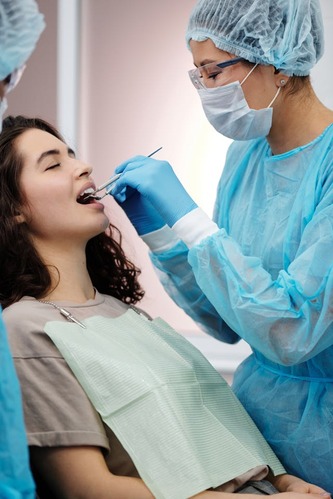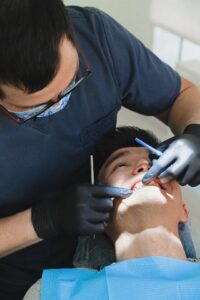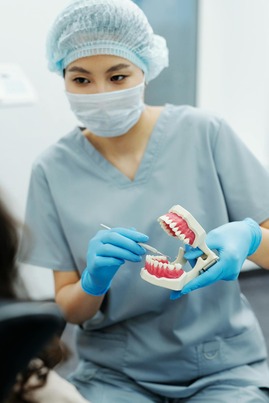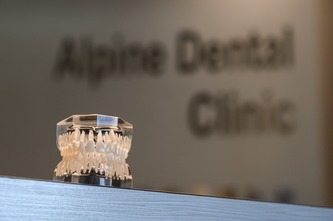Understanding Wisdom Tooth Removal: What You Need to Know
Wisdom tooth removal is a common dental procedure that many people undergo during their late teens or early adulthood. These teeth, often referred to as the third molars, can cause various dental issues if not properly managed. Here, we’ll explore what wisdom teeth are, when they typically develop, the potential problems they can cause, and why having them removed with us at Alpine Dental Clinic in Swift Current or elsewhere, might be necessary. We’ll also cover important topics like post-operative care, common myths, and the relationship between wisdom teeth and orthodontics.
What Are Wisdom Teeth?
Wisdom teeth are the last set of molars that most people develop in the back corners of their mouth. Typically, people have four wisdom teeth—two on the top and two on the bottom. These teeth usually emerge between the ages of 17 and 25, a period often referred to as the “age of wisdom,” hence the name “wisdom teeth.”
For many individuals, wisdom teeth develop without any issues. However, because these teeth are the last to emerge, there is often little room left in the mouth to accommodate them. This lack of space can lead to a variety of complications, making wisdom teeth removal necessary.
The Role of Wisdom Teeth in Evolution
Understanding why we have wisdom teeth requires a look at our evolutionary history. Our ancestors had larger jaws and a tougher diet that required more chewing power. Wisdom teeth were essential for grinding down fibrous plants and raw meat. However, as human diets evolved to include softer, cooked foods, and as our jaws became smaller, the need for these extra molars diminished. Today, wisdom teeth are often more of a hindrance than a help, leading to the complications we see in modern dentistry.
Common Problems Caused by Wisdom Teeth
Wisdom teeth can cause a range of dental issues, particularly when there isn’t enough space for them to grow properly. Some common problems include:
- Impaction: This occurs when the wisdom teeth don’t have enough room to emerge or develop normally. Impacted wisdom teeth can grow at an angle toward the neighboring teeth or remain trapped within the jawbone.
- Overcrowding: As the wisdom teeth try to emerge, they can push against other teeth, leading to overcrowding and potentially disrupting the alignment of your smile.
- Infections: Partially erupted wisdom teeth can create openings for bacteria to enter the gums, leading to infections, pain, and swelling.
- Cysts and Tumors: In rare cases, a wisdom tooth that is impacted can lead to the development of cysts or tumors, which can damage the jawbone and neighboring teeth.
These issues highlight the importance of early evaluation and, if necessary, wisdom teeth removal before they cause significant problems.
Myths and Facts About Wisdom Teeth
There are many misconceptions about wisdom teeth and their removal. Let’s debunk a few:
- Myth: Everyone needs to have their wisdom teeth removed.
- Fact: Not all wisdom teeth cause problems, and some people may not need them removed.
- Myth: The older you are, the harder the extraction process.
- Fact: While age can affect the complexity of the procedure, experienced dental professionals can manage extractions at any age.
- Myth: Recovery from wisdom teeth removal is always painful.
- Fact: With modern techniques and proper care, many patients experience minimal discomfort.
When Should Wisdom Teeth Be Removed?
Not everyone needs to have their wisdom teeth pulled. In some cases, these teeth emerge without any issues and can remain healthy. However, many dental professionals recommend removing wisdom teeth as a preventive measure, especially if:
- They are impacted and not likely to emerge properly.
- There is evidence of gum disease or tooth decay around a partially erupted wisdom tooth.
- They are causing pain or infection.
- There is a risk of overcrowding other teeth.
A dental examination and X-rays can help determine whether wisdom teeth removal is necessary for you.
Wisdom Teeth and Orthodontics
For individuals who have had or are considering orthodontic work, wisdom teeth can be a concern. These teeth can push against newly straightened teeth, potentially undoing years of orthodontic work.
Many orthodontists recommend the removal of wisdom teeth either before or after braces to prevent them from shifting the teeth out of alignment.

Alternatives to Removal
In some cases, wisdom teeth do not need to be removed immediately or at all. Here are some alternatives:
- Monitoring: If wisdom teeth are not causing problems, they can be monitored with regular dental check-ups.
- Partial Removal: In certain cases, only part of the wisdom tooth is removed (coronectomy) if it is close to a nerve.
- Medication: Inflammation and pain can sometimes be managed with medication if removal isn’t immediately necessary.
Wisdom Teeth Removal During Pregnancy
If you are pregnant and experience issues with your wisdom teeth, timing the removal is important. The second trimester is generally considered the safest time for non-emergency dental procedures. At Alpine Dental Clinic, our team will carefully evaluate the risks and benefits to ensure both mother and baby are safe during any necessary dental procedures.
The Wisdom Tooth Removal Process
The process of having your wisdom teeth taken out is generally straightforward and can be done at Alpine Dental Clinic in Swift Current. The procedure typically involves the following steps:
- Consultation: Your dentist will evaluate your teeth and discuss whether wisdom teeth removal is necessary.
- Anesthesia: Local or general anesthesia will be administered to ensure comfort during the procedure.
- Extraction: The dentist will make an incision in the gum tissue, remove any bone blocking access to the tooth root, and then extract the wisdom tooth.
- Stitches: In some cases, the dentist may place stitches to help the gum heal properly.
- Recovery: After the procedure, you’ll be given instructions on how to care for your mouth during the healing process. Swelling and discomfort are common but can be managed with prescribed medications.
Post-Operative Care Tips
After wisdom teeth removal, proper care is essential to ensure a smooth recovery. Here are some tips:
- Managing Pain and Swelling: Apply ice packs to reduce swelling and take prescribed pain relievers as directed.
- Dietary Recommendations: Stick to soft foods like yogurt, mashed potatoes, and soups. Avoid using straws, as the suction can dislodge the blood clot that forms in the socket.
- Oral Hygiene: Gently rinse your mouth with warm salt water but avoid brushing the extraction site directly for the first few days.
- Rest: Take it easy for a few days after the surgery to allow your body to heal.
- Watch for Complications: Keep an eye out for signs of infection, such as excessive swelling, persistent pain, or a fever, and contact your dentist if these occur.

Wisdom tooth removal is an important dental procedure that can prevent serious complications and preserve your oral health. If you’re in Swift Current and need your wisdom teeth pulled, consider scheduling a consultation with Alpine Dental Clinic. Our team is dedicated to providing high-quality dental care to ensure your experience is comfortable and effective. Don’t wait until problems arise—get your wisdom teeth taken out by professionals who care.
Alpine Dental Clinic For Wisdom Tooth Removal
At Alpine Dental Clinic in Swift Current, we prioritize patient comfort and care during every procedure. Our experienced dental team uses the latest techniques to ensure that wisdom teeth removal is as painless and stress-free as possible. Whether you’re experiencing symptoms related to your wisdom teeth or simply want a preventive evaluation, we’re here to help.




 Monday – Friday 8AM – 4PM
Monday – Friday 8AM – 4PM


